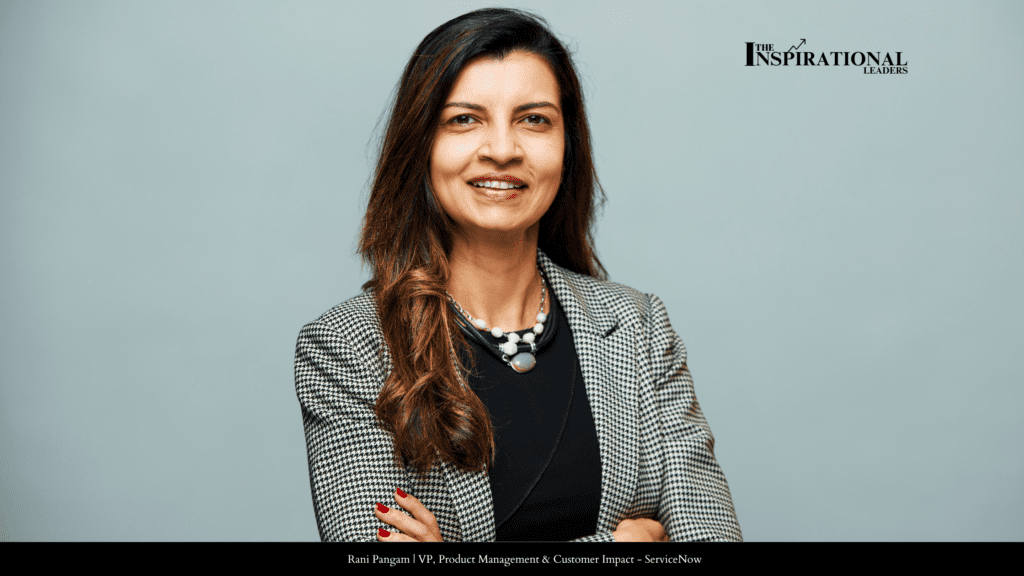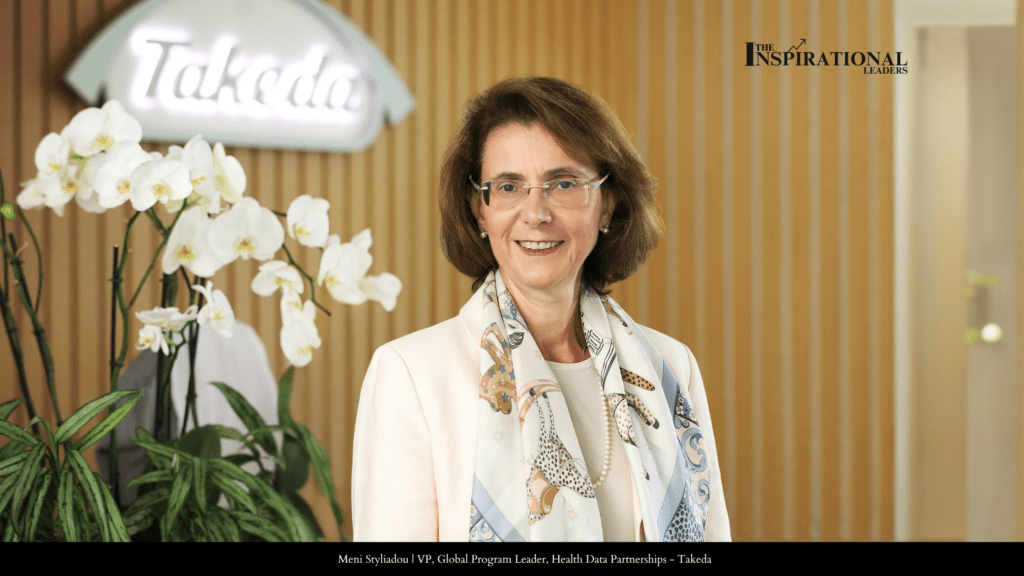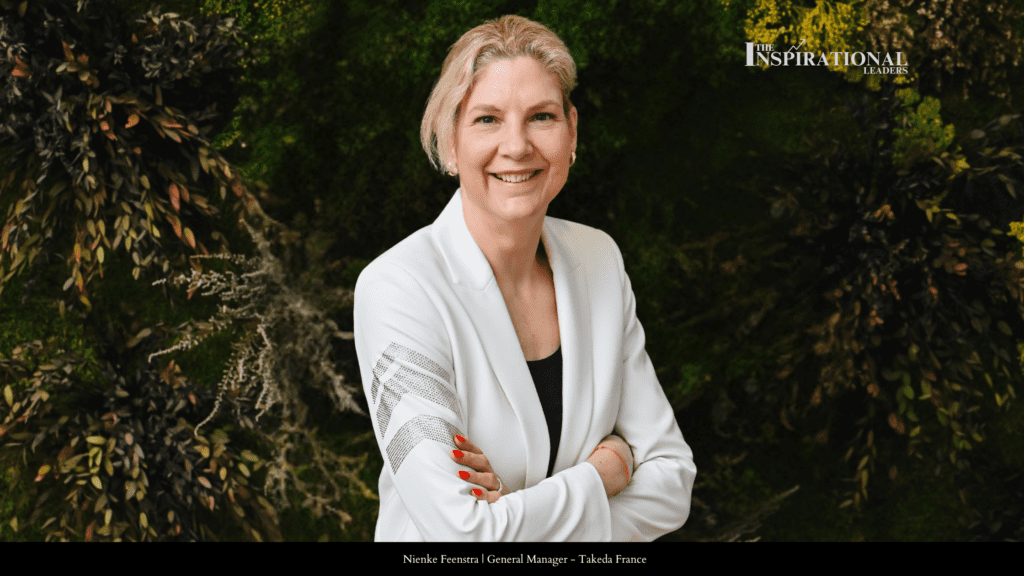From Innovation to Impact: How Rani Pangam is Shaping the Future of Technology and Empowering Women in Tech
Digital Version In the ever-evolving world of enterprise technology, leaders who bring both vision and empathy to innovation stand apart. Among these trailblazers is Rani Pangam, Vice President of Product Management & Customer Impact at ServiceNow, whose journey exemplifies resilience, adaptability, and a relentless commitment to shaping technology that transforms work and customer experience. With a background spanning business, law, risk, and compliance, Rani brings a unique lens to product leadership—one that is rooted in accountability and trust while being firmly focused on the future of digital transformation. As she continues to guide ServiceNow’s mission of revolutionizing workflows and empowering enterprises globally, her leadership is a testament to how innovation and impact intersect. A Non-Linear Journey into Technology Leadership When asked how her journey shaped her vision for technology-driven customer experiences and what inspired her to pursue leadership in tech, Rani reflects on the unconventional path she took: “My journey into digital innovation wasn’t linear—I studied business, earned a law degree, and began my career in the risk, security, and compliance world. Those early roles gave me a deep respect for accountability and trust. As digital transformation gained momentum, I saw enterprise solutions weren’t just shaping organizations and outcomes, but reshaping entire industries. That inspired me to grow as a leader in this space. What drew me in was a simple belief: innovation should make life easier. Too often, I saw organizations drowning in complexity instead of focusing on serving their customers. That fueled my conviction that technology should dissolve friction, simplify work, and amplify human potential. This led me to where I am today—helping customers succeed with digital platforms, creating impact by connecting innovation to real business outcomes. Helping customers bridge that gap—between new capabilities and measurable results—is what drives me every day. What continues to inspire me? Building solutions that don’t just work but transform how people experience work itself!” Innovation Aligned with Customer Needs Rani occupies a distinctive position at the intersection of product management and customer impact. For her, innovation is only as valuable as its ability to deliver real-world outcomes. At ServiceNow, she leads the Customer Zero strategy (Now on Now), which embeds this philosophy at the very core of the company’s operations. “At ServiceNow, I lead our Customer Zero strategy (what we call Now on Now)—where we battle-test our own products internally, at enterprise scale, before they reach customers. We don’t just design and build features; we live them. We see firsthand where friction exists, how workflows scale, and how quickly ROI can be realized. That Customer Zero practitioner experience is incredibly powerful. We go to our customers not just with theory, but with real world validation. We share best practices from our own journey, callout pitfalls to avoid, and highlight the value we’ve unlocked. In doing so, we build trust and connect with customers as peers. This strategy also makes us a living customer reference. When we tell customers about our own experiences that accelerate outcomes—it’s grounded in our own data and experience. That combination of internal mission, customer empathy, and co-creation ensures that internal product adoption translates into meaningful business outcomes.” The Trends Reshaping Enterprise Technology Looking at the enterprise technology landscape today, Rani identifies three forces she believes are fundamentally reshaping the way organizations operate: “I believe there are these forces reshaping the enterprise today: Agentic AI: We’re moving past the era of AI as a mere predictor and enabler. AI is able to act autonomously with humans mitigating risk, making adjustments, and proving structure. These intelligent AI agents—an Agentic Workforce—can execute entire workflows end-to-end: resolving incidents, processing transactions, orchestrating multi-step service requests—while escalating exceptions or ensuring quality checks are done by humans. This frees people to focus on what we do best—innovation, empathy, and strategy. Data as foundation: Connected, trusted, real-time data is the lifeblood of intelligent workflows. Without data, AI can’t deliver and automation can’t scale. Smart workflows as the glue: End-to-end workflows are how organizations break silos, orchestrate work across the enterprise, and deliver seamless experiences. ServiceNow is at the intersection of these forces. ServiceNow’s AI Platform brings AI, data, and workflows together in one place. With intelligence directly embedded into processes, and access to data across the entire enterprise, work doesn’t just move faster—it moves smarter. Employees gain guided, context-aware experiences, customers get proactive service, and leaders get foresight, instead of hindsight. The result isn’t just efficiency—it’s real transformation.” Navigating Challenges as a Female Leader in Tech Rani’s journey as a leader is also shaped by the unique challenges she has faced as a woman, and an immigrant, “My story begins as a first-generation immigrant to the US. I came here for higher education on a shoe-string budget, navigating both cultural and financial hurdles along the way. When I entered tech, I was often ‘the only’—the only woman, the only immigrant in the room. It wasn’t easy. It meant working harder to prove yourself, building resilience in the face of doubt, and learning to anchor myself in preparation and performance. But those experiences also gave me perspective: the courage to speak authentically, the empathy to mentor others navigating similar paths, and the determination to build inclusive environments where ‘the only’ can become ‘one of many.’ Empowering women in tech, for me, isn’t abstract. It’s about mentoring early-career professionals, sponsoring talent for stretch roles, and ensuring diverse representation at decision-making tables. Because when leaders open doors, opportunity multiplies—not just for individuals, but for the entire industry.” Driving Customer Success Through Leadership Among her many achievements, Rani highlights one initiative that stands out as a defining moment in her career: “One of my proudest moments came through our Customer Zero strategy. A Fortune 50 multinational was at a crossroads, evaluating vendors for a massive transformation. I was able to influence their decision by reframing how they thought about the journey—not just technology adoption, but organizational transformation,




